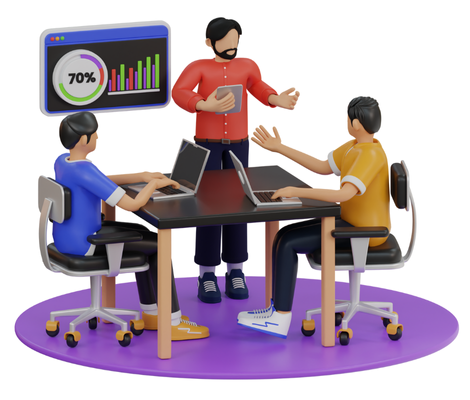Let’s explore how AI is redefining software development and what this means for businesses and developers alike.
AI as a Coding Partner
AI-powered tools are now an everyday part of the development process. Platforms like GitHub Copilot, ChatGPT-based coding assistants, and AI-enhanced IDEs are helping developers by:
-
Suggesting code snippets in real-time.
-
Auto-completing functions based on context.
-
Refactoring code for optimization.
-
Generating boilerplate code, freeing engineers to focus on complex logic.
Instead of spending hours searching documentation, developers can now get context-aware help instantly.
Smarter Testing & Debugging
Testing has always been one of the most time-consuming aspects of development. AI is changing that by:
-
Automatically generating test cases based on code behavior.
-
Predicting bugs before they happen through pattern recognition.
-
Continuous monitoring of applications to detect anomalies in real time.
This leads to faster releases, fewer production issues, and stronger customer trust.
Accelerating Software Delivery
AI is seamlessly integrated into DevOps pipelines, helping businesses deliver software faster. Some key impacts include:
-
Intelligent CI/CD – AI predicts deployment risks and suggests rollbacks before failures occur.
-
Automated code reviews – flagging security vulnerabilities or inefficiencies.
-
Smart resource allocation – optimizing infrastructure costs during deployment.
As a result, companies can push updates in days instead of weeks.
Enhancing Security
Cybersecurity threats are growing more sophisticated, and AI is now critical in defending against them. In software development, AI helps by:
-
Detecting vulnerabilities during coding (before release).
-
Monitoring logs to catch suspicious activity.
-
Recommending patches in real time.
This proactive approach reduces risks of breaches and costly downtime.
Democratizing Coding
One of the most exciting changes is how AI is making coding more accessible. Tools powered by natural language processing allow non-technical professionals to describe what they want in plain English, and AI generates the code.
This trend, often called “citizen development”, is opening up software creation to entrepreneurs, business analysts, and product managers without traditional coding backgrounds.
Real-World Applications
-
Startups are launching products faster with AI-generated prototypes.
-
Enterprises are reducing technical debt with automated refactoring.
-
Game developers use AI to build more immersive environments with adaptive code.
-
FinTech companies leverage AI for secure, high-frequency transactions.
The Future: Will AI Replace Developers?
A common fear is that AI might replace human developers. The reality is different:
-
AI handles repetitive tasks and accelerates productivity.
-
Developers focus on strategy, architecture, and creative problem-solving.
-
Human oversight remains essential for ethical, secure, and context-aware coding.
In other words, AI won’t replace developers—it will empower them to do more in less time.
Conclusion
AI is no longer just a tool—it’s becoming a partner in software development. From coding assistants and smart debugging to DevOps automation and security, AI is reshaping the way software is built and deployed.
As we move into the future, businesses and developers who embrace AI-driven workflows will gain a massive edge in innovation, speed, and reliability.
The future of code is not just human—it’s human + AI.






